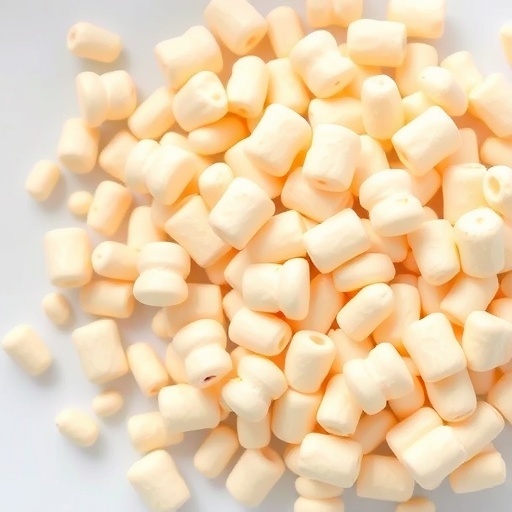In recent years, the field of probiotics has garnered substantial interest, particularly with regard to their health benefits. Among these, Bacillus clausii has emerged as a promising strain, known for its resilience and efficacy in various therapeutic scenarios. India’s probiotic market is burgeoning, yet there remains a gap in understanding the compositional quality of probiotics, particularly those containing Bacillus clausii. The research conducted by Kesavelu, Ganpathy, and Jog aims to address this gap, providing critical insights into the quality assessment of probiotic formulations available in India.
Bacillus clausii is a spore-forming bacterium that belongs to the Bacillus genus. Its distinctive ability to endure harsh environmental conditions, including extreme temperatures and acidic pH levels, renders it an attractive candidate for probiotic development. While the health benefits of probiotics are widely acknowledged, the specific characteristics that differentiate efficacious products from subpar ones necessitate comprehensive evaluation. The study of Bacillus clausii in therapeutic formulations across India offers an opportunity to scrutinize the various marketing claims attached to these products and to assess their actual benefits.
The research methodology employed by the authors was meticulously designed to evaluate a spectrum of probiotic products on the Indian market. This approach encompassed a thorough analysis of the compositional quality, which included identifying the bacterial strains present, quantifying their viability, and assessing the overall stability of the formulations. These parameters are essential in determining whether the probiotics can deliver the anticipated health benefits to consumers over their shelf life.
One primary concern surrounding probiotics, including those containing Bacillus clausii, is the assurance of their viability upon consumption. Many probiotic products fail to deliver the promised number of live organisms by the time they reach the intestines. This study systematically measured the viable counts of Bacillus clausii in various formulations, ensuring that each product’s claims regarding CFU (colony-forming units) align with the actual content. The significance of these findings lies in assuring consumers that they are receiving an effective dose of beneficial bacteria.
Additionally, the stability of probiotic products under different storage conditions plays a pivotal role in maintaining their quality. The research delved into how temperature fluctuations and humidity levels affect the shelf life of these probiotics. By simulating real-life storage scenarios, the study provides valuable information to both manufacturers and consumers about optimal conditions for preserving the efficacy of Bacillus clausii-based products. The results indicate a direct correlation between storage conditions and the viability of these probiotics over time.
Importantly, the study also highlights the regulatory landscape surrounding probiotics in India. As the market becomes increasingly saturated with various products, the need for stringent quality control measures cannot be overstated. The research emphasizes that comprehensive quality assessments should be integral to the certification process for probiotics, in order to ensure that consumers are making informed choices. It’s vital that both consumers and healthcare professionals can trust the efficacy of the products available in the market.
Consumer awareness is another significant facet of this research. As more individuals turn to probiotics for their purported health benefits, understanding the compositional quality and the actual effectiveness of these products is paramount. By bringing attention to the potential discrepancies between product labeling and actual content, the authors urge consumers to engage in informed decision-making when selecting probiotic products.
Emerging evidence suggests that probiotics, including Bacillus clausii, may have far-reaching implications for gut health, immune function, and even mental well-being. This research contributes to a broader understanding of how these specific strains can potentially benefit consumers when produced and maintained under quality standards. As the authors delve into the therapeutic applications of Bacillus clausii, they explore its potential role in preventing antibiotic-associated diarrhea and enhancing overall gut microbiota diversity.
The implications of this research extend beyond the immediate findings regarding Bacillus clausii. The study serves as a pivotal benchmark for future research within the probiotic sector. By establishing a systematic approach to evaluating the quality of probiotic formulations, the authors set the stage for subsequent investigations into other strains and their health applications. This endeavor will facilitate greater advancements in the field, ultimately benefiting both consumers and manufacturers.
Probiotics are often marketed with an array of health claims, from digestive health to enhanced immunity. However, as this study suggests, the actual benefits hinge upon the quality of the product consumed. In light of this, the call for improvements in quality assurance measures is more urgent than ever. As manufacturers strive to meet consumer demands, they must prioritize robust scientific standards to uphold the integrity of their probiotic offerings.
In conclusion, the research conducted by Kesavelu, Ganpathy, and Jog provides crucial insights into the compositional quality of probiotics containing Bacillus clausii in India. By meticulously evaluating the viability, stability, and regulatory compliance of these products, the authors contribute significantly to the understanding of probiotic formulations. Their findings illuminate the path toward enhanced consumer confidence and informed decision-making within a rapidly evolving market.
As we move forward, it is vital that both producers and consumers remain vigilant about the quality and efficacy of probiotics. The opportunity for further research into Bacillus clausii and other probiotic strains holds potential for breakthroughs in health science, paving the way for probiotics to fulfill their promise in improving health outcomes globally.
Subject of Research: Quality evaluation of probiotics containing Bacillus clausii in India.
Article Title: Evaluating the Compositional Quality of Probiotics Containing Bacillus clausii in India.
Article References:
Kesavelu, D., Ganpathy, S., Jog, P. et al. Evaluating the Compositional Quality of Probiotics Containing Bacillus clausii in India. Adv Ther (2025). https://doi.org/10.1007/s12325-025-03289-2
Image Credits: AI Generated
DOI: 10.1007/s12325-025-03289-2
Keywords: probiotics, Bacillus clausii, India, compositional quality, viability, bacteria, health benefits, gut health, quality assurance.




